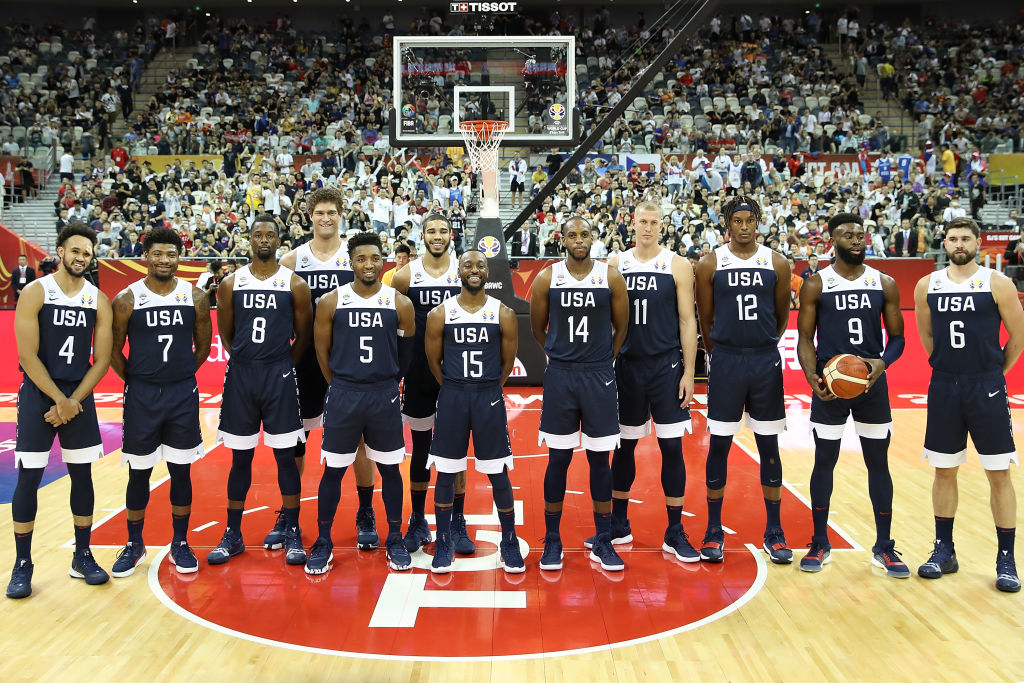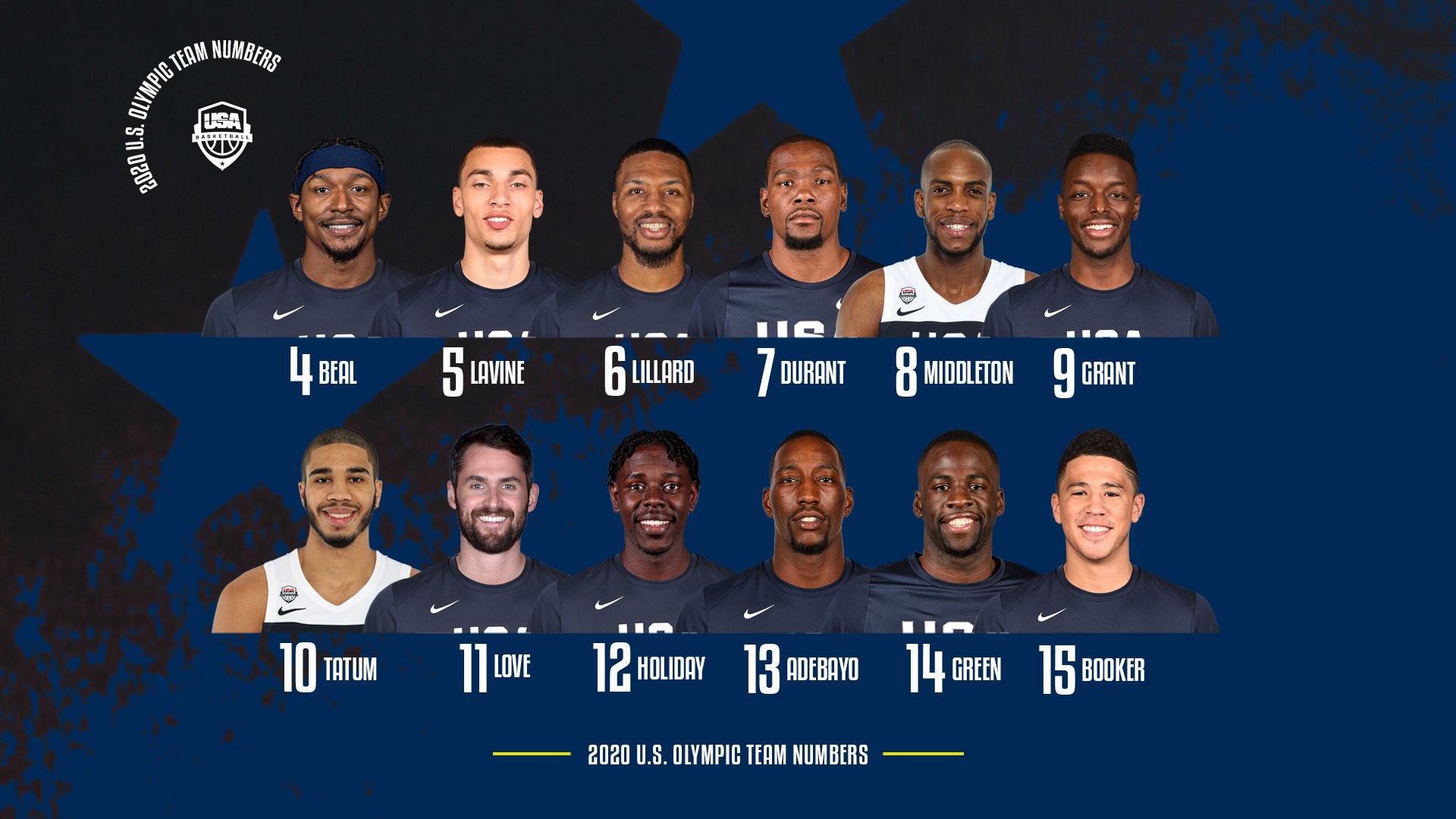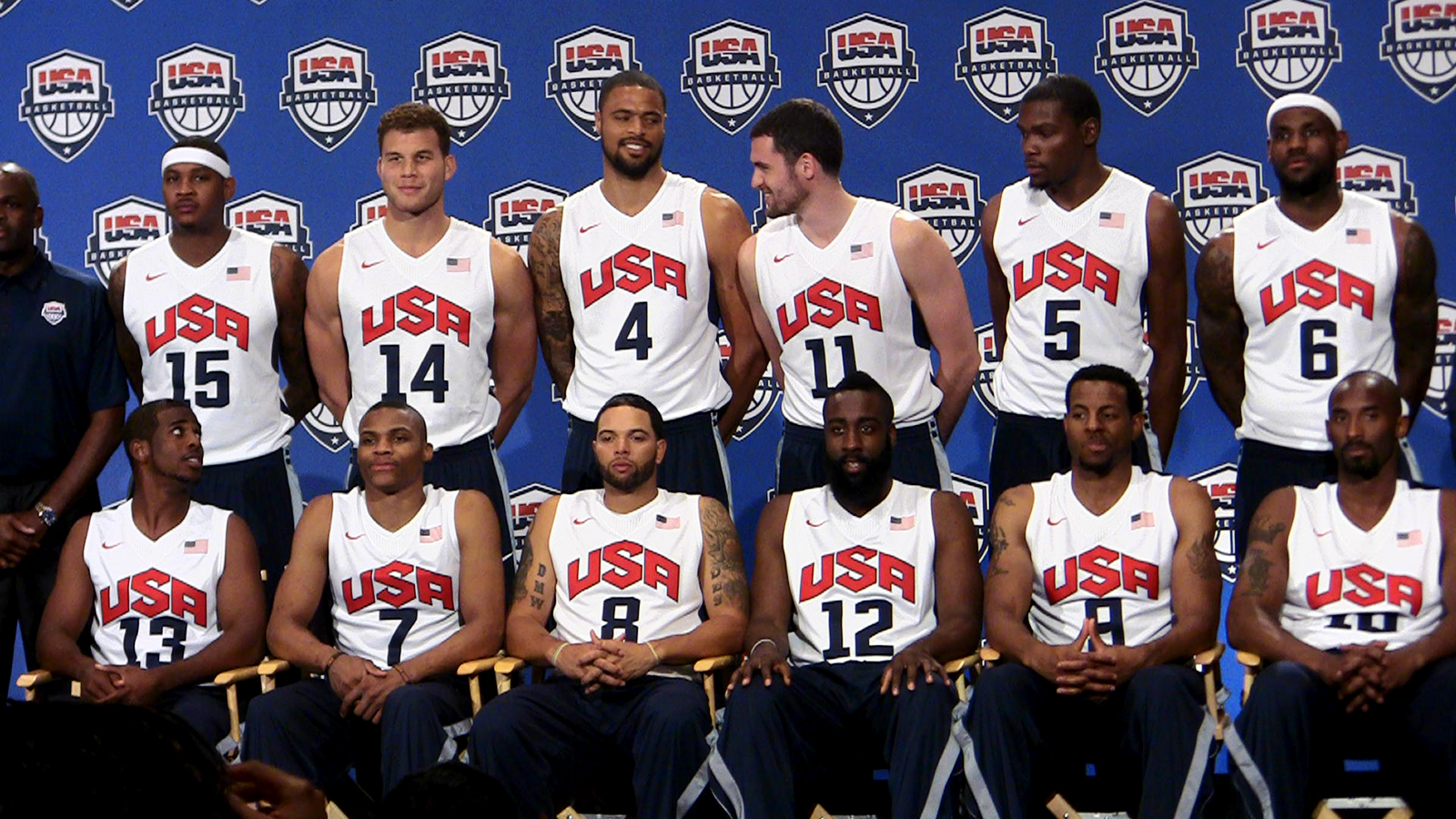History and Legacy

The US Olympic basketball team has a rich and storied history, marked by unparalleled dominance and the emergence of some of the greatest players in the sport’s history. From its humble beginnings to its current status as a global powerhouse, the team’s journey has been shaped by key moments, turning points, and the enduring impact of legendary players.
Evolution of the US Olympic Basketball Team
The US Olympic basketball team’s evolution can be traced back to the 1936 Berlin Olympics, where the team, comprised of mostly amateur players, secured a gold medal. This early success laid the foundation for the team’s future dominance. Over the years, the team’s composition shifted, with the inclusion of professional players becoming a defining feature in the 1992 Barcelona Olympics. This landmark event, often referred to as the “Dream Team,” featured NBA superstars like Michael Jordan, Magic Johnson, and Larry Bird, and marked a new era of professionalization and global recognition for the US Olympic basketball program.
Impact of Legendary Players
Michael Jordan, Magic Johnson, and LeBron James have left an indelible mark on the US Olympic basketball team’s legacy. Jordan, widely considered the greatest basketball player of all time, led the “Dream Team” to a resounding victory in Barcelona, showcasing his unparalleled skills and competitive spirit. Magic Johnson, known for his exceptional court vision and playmaking abilities, was instrumental in the team’s success, both in Barcelona and at the 1992 World Championship. LeBron James, a four-time NBA champion and widely regarded as one of the greatest players of his generation, has consistently led the US Olympic team to success, most notably at the 2008 and 2012 Olympics.
Eras of the US Olympic Basketball Team
The US Olympic basketball team has experienced distinct eras, each characterized by unique styles of play and dominant players. The “Dream Team” era (1992-2004) was marked by an emphasis on athleticism, individual brilliance, and fast-paced offense. The “Redeem Team” era (2008-2012) saw a shift towards a more team-oriented approach, emphasizing ball movement, defense, and international experience. The current era (2016-present) continues to build upon this team-first philosophy, integrating young talent with established veterans.
Timeline of the US Olympic Basketball Team, Us basketball olympics
- 1936 Berlin Olympics: The US Olympic basketball team wins its first gold medal, marking the beginning of its long and successful history.
- 1960 Rome Olympics: The US team experiences its first Olympic loss, falling to the Soviet Union in a controversial game.
- 1992 Barcelona Olympics: The “Dream Team,” featuring NBA superstars, dominates the competition, solidifying the US team’s global dominance.
- 2004 Athens Olympics: The US team experiences another Olympic loss, this time to Argentina, highlighting the growing competitiveness of international basketball.
- 2008 Beijing Olympics: The “Redeem Team,” led by LeBron James and Kobe Bryant, reclaims the gold medal, demonstrating the team’s resilience and determination.
- 2012 London Olympics: The US team wins its second consecutive gold medal, showcasing its continued dominance in international basketball.
Dominance and Challenges: Us Basketball Olympics

The United States men’s basketball team has dominated the Olympic Games for decades, winning 16 of the 19 gold medals awarded since 1936. This dominance is attributed to a combination of factors, including access to top talent, a deep pool of skilled players, and a well-established basketball culture. However, the US team has also faced challenges, including the rise of international competition and the changing landscape of player availability.
Factors Contributing to US Dominance
The US team’s dominance in Olympic basketball is rooted in several key factors:
- Abundance of Talent: The US boasts a vast pool of talented basketball players, with the NBA being the most competitive league in the world. This consistently provides the US team with a deep roster of skilled and experienced players.
- Strong Basketball Culture: Basketball is deeply ingrained in American culture, with youth leagues and college programs nurturing talent from a young age. This fosters a strong basketball culture that produces a constant flow of highly skilled players.
- Financial Resources: The US has significant financial resources available for basketball development, allowing for top-notch coaching, training facilities, and access to the best equipment. This contributes to the overall development and success of US players.
Challenges Faced by the US Team
Despite its dominance, the US team has faced several challenges in recent years:
- Increased International Competition: The level of international basketball has significantly improved, with teams like Spain, Argentina, and France consistently challenging the US. This has made the Olympics more competitive and unpredictable.
- Player Availability: The NBA season often overlaps with the Olympics, making it difficult for top NBA players to commit to playing for the US team. This can lead to roster changes and a lack of continuity.
Recent Performance and Strategic Changes
In recent Olympics, the US team has experienced some setbacks, highlighting the growing challenges it faces:
- 2004 Athens Olympics: The US team, comprised mostly of NBA players, suffered an unexpected loss to Argentina in the semifinals. This defeat shocked the world and exposed the vulnerabilities of the US team.
- 2008 Beijing Olympics: The US team, with a more experienced roster, dominated the competition and won the gold medal. This victory showcased the team’s ability to bounce back from adversity.
- 2012 London Olympics: The US team, led by a mix of young and veteran players, again won the gold medal, demonstrating the team’s adaptability and resilience.
Impact of International Basketball Development
The rise of international basketball has significantly impacted the US team’s future prospects:
- Increased Competition: The development of international basketball has created a more competitive landscape, making it more difficult for the US team to dominate. This will require the US team to consistently improve and adapt to the evolving game.
- Global Talent Pool: The emergence of talented players from around the world has created a global talent pool. This means that the US team will need to compete with other countries for top players, potentially impacting its roster composition.
Memorable Moments and Rivalries

The US Olympic basketball team’s dominance has been punctuated by unforgettable moments and intense rivalries that have shaped the sport’s global landscape. From iconic performances to thrilling contests, these moments have captivated audiences and etched themselves in basketball history.
Iconic Moments and Games
The US Olympic basketball team has been involved in numerous iconic moments and games that have left a lasting impact on the sport. These moments are not only remembered for their thrilling nature but also for their significance in shaping the team’s legacy and the global landscape of basketball.
- The “Dream Team” (1992): This iconic team, featuring NBA superstars like Michael Jordan, Magic Johnson, Larry Bird, and Charles Barkley, dominated the Barcelona Olympics, winning all eight games by an average margin of 44 points. The Dream Team’s dominance ushered in a new era of professional players participating in the Olympics, elevating the sport’s global popularity and inspiring a generation of basketball players worldwide.
- The “Redeem Team” (2008): After a disappointing bronze medal finish in 2004, the US team, led by LeBron James, Kobe Bryant, and Dwyane Wade, aimed to reclaim their dominance. They achieved this goal, winning all eight games and defeating Spain in the final, solidifying their place as one of the greatest Olympic basketball teams of all time. The Redeem Team’s victory served as a symbolic redemption for the US, showcasing the team’s renewed commitment to international competition.
- The 2012 London Olympics Final: The US team, led by LeBron James and Kevin Durant, faced a tough challenge from Spain in the final. Spain, featuring players like Pau Gasol and Marc Gasol, pushed the US to the limit, but ultimately, the US emerged victorious, winning 107-100. This game highlighted the growing competitiveness of international basketball and demonstrated the high level of skill and talent present in teams outside the US.
Rivalries
The US Olympic basketball team has faced numerous formidable opponents over the years, developing intense rivalries that have fueled the growth and excitement of the sport. These rivalries have been characterized by competitive spirit, strategic battles, and moments of brilliance that have captivated audiences worldwide.
- Argentina: The rivalry between the US and Argentina dates back to the 2004 Athens Olympics, where Argentina, led by Manu Ginobili, defeated the US in a shocking upset. This loss marked a turning point in US basketball, prompting a reevaluation of the team’s approach to international competition. The rivalry intensified in the 2008 Beijing Olympics, where the US defeated Argentina in a closely contested semifinal. This rivalry has become a symbol of the rising competitiveness of international basketball, with Argentina consistently challenging the US for supremacy.
- Spain: Spain has emerged as a formidable opponent for the US, consistently challenging them in major tournaments. Led by brothers Pau and Marc Gasol, Spain has showcased a blend of size, skill, and tactical prowess, pushing the US to their limits. The 2008 Beijing Olympics final and the 2012 London Olympics final are testaments to this intense rivalry, with Spain demonstrating its ability to compete with the best teams in the world.
- Australia: Australia has consistently been a tough opponent for the US, boasting a strong and athletic team with a deep pool of talent. The rivalry between the two teams has been characterized by physicality, intensity, and a competitive spirit. The 2004 Athens Olympics semifinal, where Australia pushed the US to the brink, remains a memorable encounter. This rivalry has highlighted the growing talent and depth of basketball outside the US, showcasing the global reach of the sport.
Top 5 Memorable Olympic Basketball Games Involving the US Team
The US Olympic basketball team has been involved in numerous memorable games, each leaving a lasting impact on the sport’s history. Here are five of the most iconic games, showcasing the team’s dominance, the intensity of rivalries, and the evolution of international basketball:
| Rank | Game | Date | Score | Players | Significance |
|---|---|---|---|---|---|
| 1 | US vs. Argentina (2004 Athens Olympics Semifinal) | August 27, 2004 | 89-81 (Argentina) | Manu Ginobili (ARG), Tim Duncan (USA), Carmelo Anthony (USA) | This game marked a turning point in US basketball, as Argentina, led by Manu Ginobili, defeated the US in a shocking upset. This loss exposed the vulnerabilities of the US team and highlighted the rising competitiveness of international basketball. |
| 2 | US vs. Spain (2008 Beijing Olympics Final) | August 24, 2008 | 118-107 (USA) | LeBron James (USA), Kobe Bryant (USA), Pau Gasol (ESP) | The “Redeem Team” dominated the 2008 Olympics, defeating Spain in the final. This victory showcased the US team’s dominance and solidified their place as one of the greatest Olympic basketball teams of all time. |
| 3 | US vs. Yugoslavia (1992 Barcelona Olympics Final) | August 8, 1992 | 117-85 (USA) | Michael Jordan (USA), Magic Johnson (USA), Dražen Petrović (YUG) | The “Dream Team” dominated the 1992 Barcelona Olympics, showcasing the power and talent of NBA players on the international stage. This game cemented the team’s legacy as one of the greatest basketball teams ever assembled. |
| 4 | US vs. Australia (2004 Athens Olympics Semifinal) | August 25, 2004 | 89-85 (USA) | Andrew Gaze (AUS), Allen Iverson (USA), LeBron James (USA) | This game was a close encounter, with Australia pushing the US to the brink. It highlighted the growing talent and depth of basketball outside the US and showcased the competitive spirit of the Australian team. |
| 5 | US vs. Spain (2012 London Olympics Final) | August 12, 2012 | 107-100 (USA) | LeBron James (USA), Kevin Durant (USA), Marc Gasol (ESP) | This game showcased the growing competitiveness of international basketball, with Spain pushing the US to their limits. It highlighted the high level of skill and talent present in teams outside the US. |
Cultural Impact
These memorable moments and intense rivalries have had a profound cultural impact on the global basketball community. The dominance of the US Olympic basketball team has inspired a generation of players worldwide, raising the level of competition and promoting the sport’s global growth. The emergence of formidable opponents like Argentina, Spain, and Australia has challenged the US’s dominance, fostering a spirit of competition and innovation. These rivalries have also contributed to the sport’s global popularity, captivating audiences and showcasing the talent and passion of basketball players from all corners of the world.
Us basketball olympics – The US basketball team has dominated the Olympics for decades, boasting a roster of all-stars like LeBron James. His contributions to the game are legendary, and you can check out his impressive lebron james stats to see just how dominant he’s been.
This legacy of success on the international stage is a testament to the depth and talent of American basketball, ensuring that the US remains a force to be reckoned with in future Olympics.
The US Basketball Olympics team is known for its incredible talent and dedication, and their performances are always a highlight of the Games. Whether you’re cheering them on from home or attending the games in person, a comfortable seat is essential, and what better choice than a minnie mouse camping chair ?
It’s a fun and functional choice that’s sure to make your viewing experience even more enjoyable, so you can relax and focus on the thrilling action on the court.
